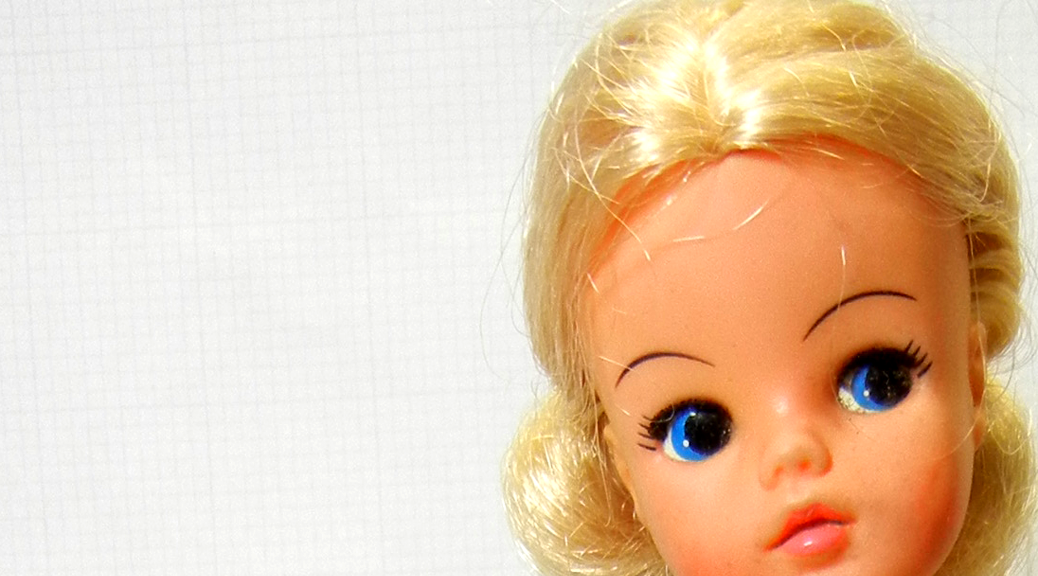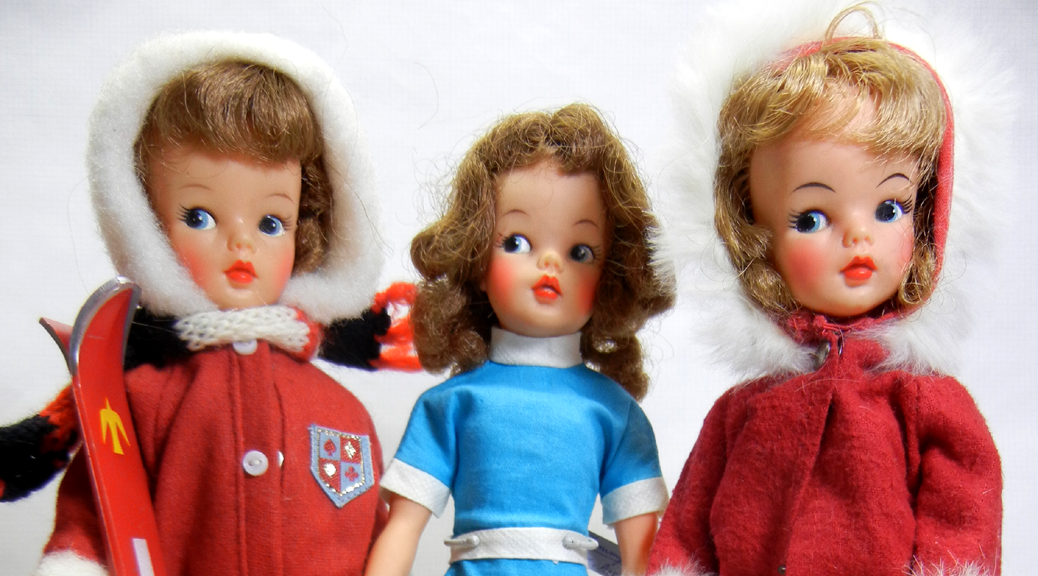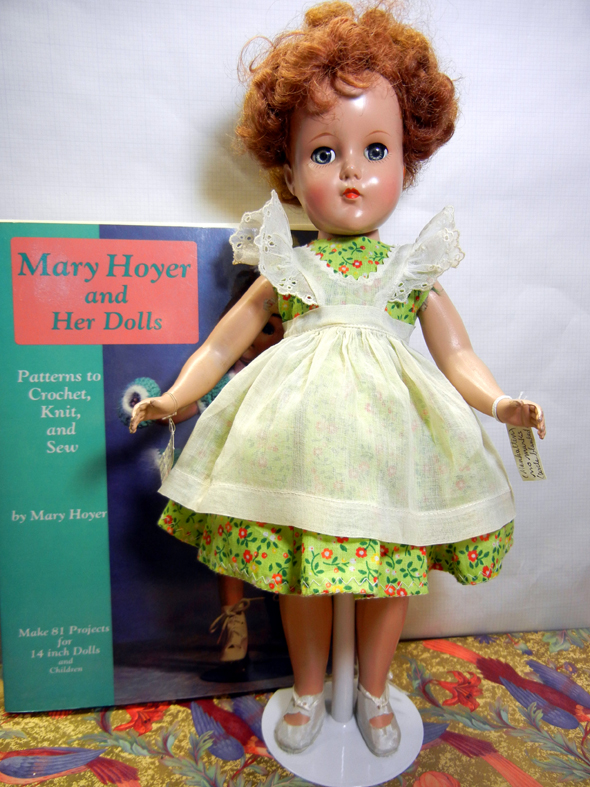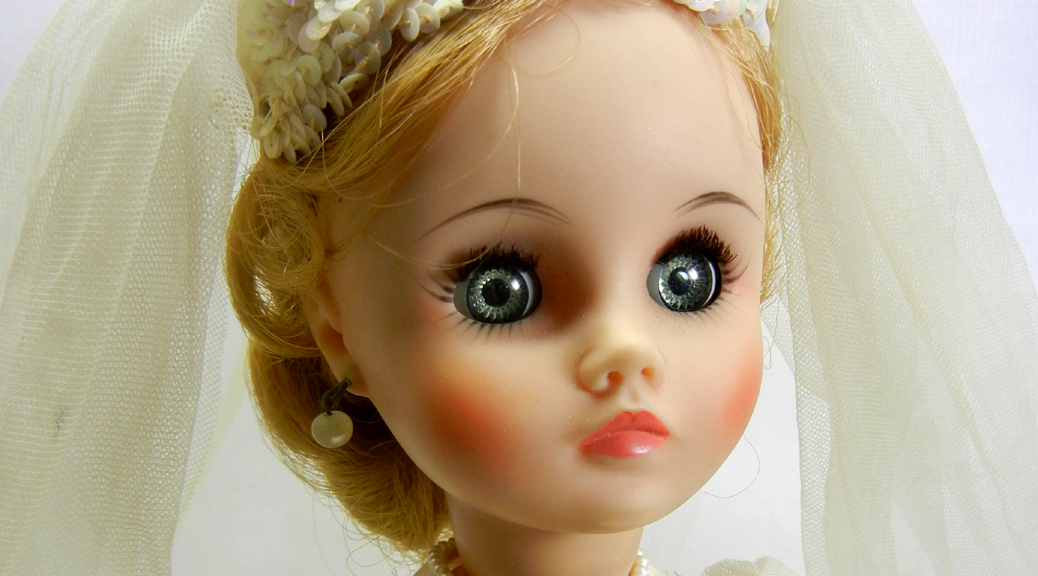The British doll company Pedigree created 12 in. Sindy in 1963. She resembled Ideal’s Tammy (1962). This is the 1978-1982 Sindy in her original outfit, produced by USA’s Marx in an agreement between the two companies.


This is Tammy’s family by Ideal. Mom, 1963, is a 12 in. vinyl doll with rooted hair, wearing her original dress. Little sister Pepper, 1963, is a 9 in. doll, made of vinyl with rooted hair. She is wearing her original outfit. Her brother Ted is a 12.5 in. 1963 vinyl doll with painted hair, shown wearing one of his original outfits. Missing is Tammy’s Father.

Ideal had been making full-figure fashion dolls since the 1950’s and other companies followed suit. This trend reached it’s peak with the introduction of Barbie in 1959. In 1962 Ideal Toy Corp. introduced 12 in. vinyl Tammy. She looked more like a teen ager than the 1959 Barbie. These three Tammys are in original outfits. In 1963 Tammy had a sister, brother, Mom and Dad. They were made from 1962 to 1965.
This 14 in. high heel teenager has a face like the Teeny Betsy McCall standing beside her. She has a hard plastic body, vinyl head, and is marked “R 15 V” on her lower back. I found a photo and detailed description that identified her as an American Character 14 in. Betsy McCall, 1958. The dress was made from McCall’s Betsy pattern #2255.
Several years after finding this doll undressed, apparently with no marks, I thought I knew who she was – a 14 in. hard plastic Mary Hoyer from the 1950’s. Recently upon closer examination, I found the mark R&B under her hair and identified her as Nancy Lee by Arranbee. I made her dress from one of the sewing patterns in the book, Mary Hoyer and Her Dolls. Mary Hoyer was a designer of knit and crocheted fashions for children. She had a mail order business to sell her patterns and supplies. The idea of adapting similar patterns for dolls proved to be very successful. The dolls and their patterns were sold through needlework magazines.
The dolls and their patterns were sold through needlework magazines.
